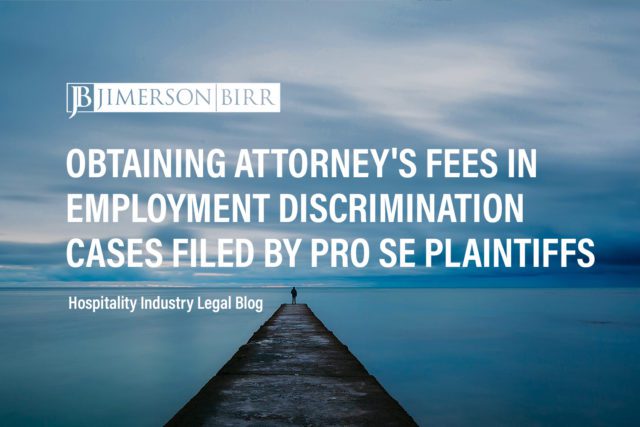How does anti-money laundering compliance affect businesses?
Anti-money laundering (AML) compliance significantly impacts businesses across various sectors, particularly those involved in financial services. Compliance with AML regulations is not just a legal requirement but also essential for maintaining trust and integrity within the financial system. Failure to adhere to these regulations can result in severe penalties, including hefty fines, reputational damage, and even criminal charges for individuals involved in money laundering activities.
From a practical standpoint, implementing AML compliance measures requires significant resources like time, money, and manpower. Businesses must invest in robust systems and processes to identify and mitigate the risks associated with money laundering, such as customer due diligence, transaction monitoring, and suspicious activity reporting. This often involves deploying sophisticated technologies and employing compliance professionals with specialized knowledge in AML regulations.
Furthermore, AML compliance imposes additional administrative burdens on businesses. They must navigate a web of regulatory requirements across different jurisdictions, each with its own set of rules and standards. This can lead to increased compliance costs, operational inefficiencies, and regulatory complexity, especially for multinational corporations with a global footprint.
Need help regarding anti-money laundering compliance? Schedule your consultation today with a top hospitality attorney.
In Florida, which laws and regulations apply to anti-money laundering compliance?
In Florida, anti-money laundering (AML) compliance is primarily governed by a combination of federal laws and regulations, as well as state-specific requirements. Here’s an overview:
- Bank Secrecy Act (BSA): This is the cornerstone of AML regulation in the United States. It requires financial institutions, including banks and credit unions, to establish and maintain effective AML programs, including customer identification and due diligence procedures, suspicious activity monitoring and reporting, and currency transaction reporting.
- USA PATRIOT Act: Enacted in response to the 9/11 terrorist attacks, this law expanded and strengthened the AML framework, requiring financial institutions to implement enhanced due diligence measures, including verifying the identities of customers and conducting enhanced scrutiny of high-risk accounts.
- Florida Money Laundering Act (Florida Statute § 896.101): This state law imposes additional AML requirements on financial institutions, money services businesses, and other entities operating in Florida. It complements federal AML laws and regulations, providing additional tools for law enforcement to combat money laundering activities within the state.
What are common issues regarding anti-money laundering compliance that lead to litigation?
Several common issues related to anti-money laundering (AML) compliance can lead to litigation for businesses. Here are some of the most prevalent:
- Inadequate Customer Due Diligence (CDD): Failing to conduct thorough customer due diligence can result in litigation, especially if it leads to transactions with individuals or entities engaged in illicit activities. Courts may hold businesses accountable for negligence in verifying customer identities, backgrounds, and sources of funds.
- Insufficient Transaction Monitoring: Inadequate systems for monitoring and detecting suspicious transactions can expose businesses to legal risks. If suspicious activities go unnoticed or unreported due to ineffective monitoring processes, regulators may impose penalties, and affected parties may pursue litigation for damages resulting from financial crimes facilitated by the business.
- Failure to Report Suspicious Activity: A key component of AML compliance is the obligation to report suspicious transactions to relevant authorities, such as the Financial Crimes Enforcement Network (FinCEN) in the United States. Failure to file suspicious activity reports (SARs) in a timely and accurate manner can lead to regulatory enforcement actions and civil litigation, particularly if financial crimes occur as a result of the failure to report.
- Lack of AML Training and Awareness: Inadequate training of employees on AML policies and procedures can result in compliance failures and legal consequences. Businesses may face litigation if employees unknowingly engage in activities that violate AML regulations due to a lack of awareness or understanding of their obligations.
- Failure to Implement Effective AML Programs: Businesses must establish robust AML programs tailored to their specific risks and compliance obligations. Failure to implement adequate controls, policies, and procedures to prevent money laundering can result in regulatory scrutiny, fines, and litigation from affected parties seeking damages.
- Sanctions Violations: Businesses that engage in transactions with sanctioned individuals, entities, or countries may face legal consequences, including litigation, for violating economic sanctions laws and regulations. Failure to screen customers, vendors, and counterparties against sanctions lists can lead to significant legal and financial penalties.
- Third-Party Risk Management: Outsourcing certain AML functions to third-party service providers introduces additional risks if those providers fail to comply with AML regulations adequately. Businesses may be held liable for the actions or omissions of their third-party vendors, leading to litigation if compliance failures occur.
We are value-based attorneys at Jimerson Birr, which means we look at each action with our clients from the point of view of costs and benefits while reducing liability. Then, based on our client’s objectives, we chart a path to seek appropriate remedies.
To determine whether your unique situation may necessitate litigation, please contact our office to set up your initial consultation.
What steps should businesses take to minimize the risk of litigation over anti-money laundering compliance?
- Develop and Implement Robust AML Policies and Procedures: Establish comprehensive AML policies and procedures tailored to the specific risks of the business and regulatory requirements. Ensure that these policies cover customer due diligence, transaction monitoring, suspicious activity reporting, and compliance with applicable laws and regulations.
- Conduct Regular Risk Assessments: Perform ongoing risk assessments to identify and mitigate potential AML risks associated with the business’s products, services, customers, and geographic locations. Adjust AML controls and procedures accordingly to address emerging threats and vulnerabilities.
- Provide Adequate Training and Awareness: Educate employees at all levels of the organization about their AML obligations and the importance of compliance. Conduct regular training sessions to raise awareness of AML risks, regulatory requirements, and the consequences of non-compliance.
- Implement Effective Customer Due Diligence (CDD) Procedures: Develop robust CDD processes to verify customer identities, assess their risk profiles, and monitor their transactions for suspicious activity. Conduct enhanced due diligence for high-risk customers, such as politically exposed persons (PEPs) and customers in high-risk jurisdictions.
- Enhance Transaction Monitoring Systems: Deploy advanced technologies and analytics to monitor transactions in real-time and detect potentially suspicious activity. Implement automated alerts and escalation procedures to ensure timely review and reporting of suspicious transactions to regulatory authorities.
- Maintain Adequate Record-Keeping: Maintain accurate and complete records of customer information, transactions, and AML compliance activities. Ensure that records are retained for the required period as per regulatory requirements and can be readily accessed for audits and investigations.
- Conduct Regular Audits and Reviews: Conduct periodic audits and reviews of the AML program to assess its effectiveness and identify areas for improvement. Engage internal or external auditors with expertise in AML compliance to provide independent assessments and recommendations.
Frequently Asked Questions
Who is subject to AML regulations?
AML regulations typically apply to financial institutions, including banks, credit unions, money services businesses, securities brokers, and insurance companies. However, non-financial businesses, such as casinos, real estate agents, and dealers in precious metals, may also be subject to AML requirements depending on their activities and jurisdictions.
What are the consequences of non-compliance with AML requirements?
Non-compliance with AML regulations can result in severe consequences, including regulatory sanctions, financial penalties, loss of reputation, legal liabilities, and criminal charges for individuals involved in money laundering activities.
What can businesses get assistance with AML compliance?
Businesses can seek assistance with AML compliance from legal and compliance experts, industry associations, regulatory agencies, and specialized AML compliance software and service providers. Additionally, regulatory authorities often provide guidance and resources to help businesses understand and comply with AML regulations.
Have more questions about an anti-money laundering compliance-related situation?
Crucially, this overview of anti-money laundering compliance does not begin to cover all the laws implicated by this issue or the factors that may compel the application of such laws. Every case is unique, and the laws can produce different outcomes depending on the individual circumstances.
Jimerson Birr attorneys guide our clients to help make informed decisions while ensuring their rights are respected and protected. Our lawyers are highly trained and experienced in the nuances of the law, so they can accurately interpret statutes and case law and holistically prepare individuals or companies for their legal endeavors. Through this intense personal investment and advocacy, our lawyers will help resolve the issue’s complicated legal problems efficiently and effectively.
Having a Jimerson Birr attorney on your side means securing a team of seasoned, multi-dimensional, cross-functional legal professionals. Whether it is a transaction, an operational issue, a regulatory challenge, or a contested legal predicament that may require court intervention, we remain tireless advocates at every step. Being a value-added law firm means putting the client at the forefront of everything we do. We use our experience to help our clients navigate even the most complex problems and come out the other side triumphant.
If you want to understand your case, the merits of your claim or defense, potential monetary awards, or the amount of exposure you face, you should speak with a qualified Jimerson Birr lawyer. Our experienced team of attorneys is here to help. Call Jimerson Birr at (904) 389-0050 or use the contact form to schedule a consultation.

We live by our 7 Superior Service Commitments
- Conferring Client-Defined Value
- Efficient and Cost-Effective
- Accessibility
- Delivering an Experience While Delivering Results
- Meaningful and Enduring Partnership
- Exceptional Communication Based Upon Listening
- Accountability to Goals











